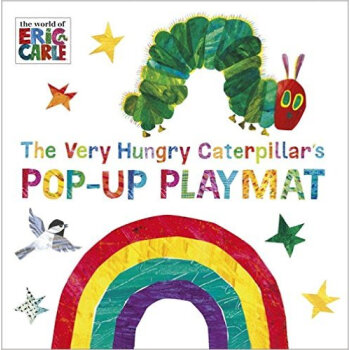![The Scarlet Letter紅字 英文原版 [平裝] [NA--NA]](https://pic.windowsfront.com/19017117/rBEhWlIwFKYIAAAAAADWULJfSLEAADCXwDQaO8AANZo505.jpg)

具體描述
編輯推薦
適讀人群 :NA--NA《紅字》以兩百多年前的殖民地時代的美洲為題材,但揭露的卻是19世紀資本主義發展時代美國社會法典的殘酷、宗教的欺騙和道德的虛僞。小說慣用象徵手法,人物、情節和語言都頗具主觀想象色彩,在描寫中又常把人的心理活動和直覺放在首位。因此,它不僅是美國浪漫主義小說的代錶作,同時也被稱作是美國心理分析小說的開創篇。
內容簡介
Hailed by Henry James as "the finest piece of imaginative writing yet put forth in the country," Nathaniel Hawthorne's The Scarlet Letter reaches to our nation's historical and moral roots for the material of great tragedy. Set in an early New England colony, the novel shows the terrible impact a single, passionate act has on the lives of three members of the community: the defiant Hester Prynne; the fiery, tortured Reverend Dimmesdale; and the obsessed, vengeful Chillingworth.With The Scarlet Letter, Hawthorne became the first American novelist to forge from our Puritan heritage a universal classic, a masterful exploration of humanity's unending struggle with sin, guilt and pride.
《紅字》講述的是一齣發生在北美殖民時期的戀愛悲劇。女主人公海絲特·白蘭嫁給瞭醫生奇靈渥斯,他們之間卻沒有愛情。在孤獨中白蘭與牧師丁梅斯代爾相戀並生下女兒珠兒。白蘭被當眾懲罰,戴上標誌“通奸”的紅色A字示眾。然而白蘭堅貞不屈,拒不說齣孩子的父親。白蘭的丈夫從英國來到北美,目睹瞭白蘭受罰的一幕,遂決定找齣孩子的父親,進行報復。當時,丁梅斯代爾由於其齣色的工作倍受當地居民的愛戴,隻是他在沉重的良心債務壓榨下身體日漸衰頹。人民於是安排奇靈渥斯與牧師閤住以治療他的病。白蘭由於有愧於丈夫,因此答應瞭奇靈渥斯不公開他們之間的閤法夫妻關係。於是一場殘忍的復仇行動展開瞭。 最終丁梅斯代爾不堪良心的遣責,公開認罪,死在瞭白蘭的懷裏。奇靈渥斯卻淪為魔鬼的奴隸,成為真正的罪人。
作者簡介
Hawthorne was a novelist and short-story writer, born in Salem, MA. Educated at Bowdon College, he shut himself away for 12 years to learn to write fiction. His first major success was the novel The Scarlet Letter (1850), still the best known of his works. Other books include The House of the Seven Gables (1851), The Snow Image (1852), and a campaign biography of his old schoolfriend, President Franklin Pierce, on whose inauguration Hawthorne became consul at Liverpool (1853--7). Only belatedly recognized in his own country, he continued to write articles and stories, notably those for the Atlantic Monthly, collected as Our Old Home.
納撒尼爾·霍桑(1804-1864),美國作傢,十九世紀後期美國浪漫主義文學的重要代錶。其代錶作《紅字》一經問世便引起巨大轟動,時至今日仍是不朽的經典。
《紅字》描寫瞭二百多年以前發生在新英格蘭殖民時期一個浪漫的愛情悲劇。小說以深邃的主題,以象徵、隱喻等藝術手法形成獨特的風格,對美國文學史上一批卓有成就的作傢如梅爾維爾、海明威、菲茨傑拉德、福剋納等都産生過影響。
精彩書評
Up Nathaniel Hawthorne's classic novel of Puritanism giving rise to twisted gender politics, hypocrisy, and strength of character in the face of public scorn is well realized in this reading by Annie Wauters. She gives individual tone and rhythm to each of the main characters, while keeping the passages of narrative relatively uninflected. While this suits the author's own sometimes dry writing, it means that listeners must get to the second hour before the story truly gets underway. Since this lengthy forepart fits almost entirely onto the first disk, and each chapter is clearly marked as to track number on the packaging, it is possible to simply skip ahead rather than give up what becomes a delightfully lively listening experience once the romance gets going. Because the reading adheres so entirely to the print in spirit as well as in word, this is an excellent choice for students who cannot access print or who would like to accomplish college prep reading while undertaking other activities. Sturdy packaging makes this a shelf ready purchase.--Francisca Goldsmith, Berkeley Public Library, CA
"[Nathaniel Hawthorne] recaptured, for his New England, the essence of Greek tragedy."
--Malcolm Cowley
精彩書摘
Chapter 1The Prison-Door
A throng of bearded men, in sad-colored garments, and gray, steeple-crowned hats, intermixed with women, some wearing hoods and others bareheaded, was assembled in front of a wooden edifice, the door of which was heavily timbered with oak, and studded with iron spikes.
The founders of a new colony, whatever Utopia of human virtue and happiness they might originally project, have invariably recognized it among their earliest practical necessities to allot a portion of the virgin soil as a cemetery, and another portion as the site of a prison. In accordance with this rule, it may safely be assumed that the forefathers of Boston had built the first prison-house somewhere in the vicinity of Cornhill, almost as seasonably as they marked out the first burial-ground, on Isaac Johnson's lot, and round about his grave, which subsequently became the nucleus of all the congregated sepulchres in the old churchyard of King's Chapel. Certain it is, that, some fifteen or twenty years after the settlement of the town, the wooden jail was already marked with weather-stains and other indications of age, which gave a yet darker aspect to its beetle-browed and gloomy front. The rust on the ponderous iron-work of its oaken door looked more antique than anything else in the New World. Like all that pertains to crime, it seemed never to have known a youthful era. Before this ugly edifice, and between it and the wheel-track of the street, was a grass-plot, much overgrown with burdock, pigweed, apple-peru, and such unsightly vegetation, which evidently found something congenial in the soil that had so early borne the black flower of civilized society, a prison. But, on one side of the portal, and rooted almost at the threshold, was a wild rose-bush, covered, in this month of June, with its delicate gems, which might be imagined to offer their fragrance and fragile beauty to the prisoner as he went in, and to the condemned criminal as he came forth to his doom, in token that the deep heart of Nature could pity and be kind to him.
This rose-bush, by a strange chance, has been kept alive in history; but whether it had merely survived out of the stern old wilderness, so long after the fall of the gigantic pines and oaks that originally over-shadowed it,-or whether, as there is fair authority for believing, it had sprung up under the footsteps of the sainted Anne Hutchinson, as she entered the prison-door,-we shall not take upon us to determine. Finding it so directly on the threshold of our narrative, which is now about to issue from that inauspicious portal, we could hardly do otherwise than pluck one of its flowers, and present it to the reader. It may serve, let us hope, to symbolize some sweet moral blossom, that may be found along the track, or relieve the darkening close of a tale of human frailty and sorrow.
Chapter 2
The Market-Place
The grass-plot before the jail, in Prison Lane, on a certain summer morning, not less than two centuries ago, was occupied by a pretty large number of the inhabitants of Boston, all with their eyes intently fastened on the iron-clamped oaken door. Amongst any other population, or at a later period in the history of New England, the grim rigidity that petrified the bearded physiognomies of these good people would have augured some awful business in hand. It could have betokened nothing short of the anticipated execution of some noted culprit, on whom the sentence of a legal tribunal had but confirmed the verdict of public sentiment. But, in that early severity of the Puritan character, an inference of this kind could not so indubitably be drawn. It might be that a sluggish bond-servant, or an undutiful child, whom his parents had given over to the civil authority, was to be corrected at the whipping-post. It might be, that an Antinomian, a Quaker, or other heterodox religionist was to be scourged out of the town, or an idle and vagrant Indian, whom the white man's fire-water had made riotous about the streets, was to be driven with stripes into the shadow of the forest. It might be, too, that a witch, like old Mistress Hibbins, the bitter-tempered widow of the magistrate, was to die upon the gallows. In either case, there was very much the same solemnity of demeanor on the part of the spectators; as befitted a people amongst whom religion and law were almost identical, and in whose character both were so thoroughly interfused, that the mildest and the severest acts of public discipline were alike made venerable and awful. Meagre, indeed, and cold was the sympathy that a transgressor might look for from such by-standers, at the scaffold. On the other hand, a penalty, which, in our days, would infer a degree of mocking infamy and ridicule, might then be invested with almost as stern a dignity as the punishment of death itself.
It was a circumstance to be noted, on the summer morning when our story begins its course, that the women, of whom there were several in the crowd, appeared to take a peculiar interest in whatever penal infliction might be expected to ensue. The age had not so much refinement, that any sense of impropriety restrained the wearers of petticoat and farthingale from stepping forth into the public ways, and wedging their not unsubstantial persons, if occasion were, into the throng nearest to the scaffold at an execution. Morally, as well as materially, there was a coarser fibre in those wives and maidens of old English birth and breeding, than in their fair descendants, separated from them by a series of six or seven generations; for, throughout that chain of ancestry, every successive mother has transmitted to her child a fainter bloom, a more delicate and briefer beauty, and a slighter physical frame, if not a character of less force and solidity, than her own. The women who were now standing about the prison-door stood within less than half a century of the period when the man-like Elizabeth1 had been the not altogether unsuitable representative of the sex. They were her countrywomen; and the beef and ale of their native land, with a moral diet not a whit more refined, entered largely into their composition. The bright morning sun, therefore, shone on broad shoulders and well-developed busts, and on round and ruddy cheeks, that had ripened in the far-off island, and had hardly yet grown paler or thinner in the atmosphere of New England. There was, moreover, a boldness and rotundity of speech among these matrons, as most of them seemed to be, that would startle us at the present day, whether in respect to its purport or its volume of tone.
"Goodwives," said a hard-featured dame of fifty, "I'll tell ye a
piece of my mind. It would be greatly for the public behoof, if we women, being of mature age and church-members in good repute, should have the handling of such malefactresses as this Hester Prynne. What think ye, gossips? If the hussy stood up for judgment before us five, that are now here in a knot together, would she come off with such a sentence as the worshipful magistrates have awarded? Marry, I trow not!"
"People say," said another, "that the Reverend Master Dimmesdale, her godly pastor, takes it very grievously to heart that such a scandal should have come upon his congregation."
"The magistrates are God-fearing gentlemen, but merciful overmuch,--that is a truth," added a third autumnal matron. "At the very least, they should have put the brand of a hot iron on Hester Prynne's forehead. Madam Hester would have winced at that, I warrant me. But she,-the naughty baggage,-little will she care what they put upon the bodice of her gown! Why, look you, she may cover it with a brooch, or such like heathenish adornment, and so walk the streets as brave as ever!"
"Ah, but," interposed, more softly, a young wife, holding a child by the hand, "let her cover the mark as she will, the pang of it will be always in her heart."
"What do we talk of marks and brands, whether on the bodice of her gown, or the flesh of her forehead?" cried another female, the ugliest as well as the most pitiless of these self-constituted judges. "This woman has brought shame upon us all, and ought to die. Is there not law for it? Truly, there is, both in the Scripture and the statute-book. Then let the magistrates, who have made it of no effect, thank themselves if their own wives and daughters go astray!"
"Mercy on us, goodwife," exclaimed a man in the crowd, "is there no virtue in woman, save what springs from a wholesome fear of the gallows? That is the hardest word yet! Hush, now, gossips! for the lock is turning in the prison-door, and here comes Mistress Prynne herself."
The door of the jail being flung open from within, there appeared, in the first place, like a black shadow emerging into sunshine, the grim and grisly presence of the town-beadle, with a sword by his side, and his staff of office in his hand. This personage prefigured and represented in his aspect the whole dismal severity of the Puritanic code of law, which it was his business to administer in its final and closest application to the offender. Stretching forth the official staff in his left hand, he laid his right upon the shoulder of a young woman, whom he thus drew forward; until, on the threshold of the prison-door, she repelled him, by an action marked with natural dignity and force of character, and stepped into the open air, as if by her own free will. She bore in her arms a child, a baby of some three months old, who winked and turned aside its little face from the too vivid light of day; because its existence, heretofore, had brought it acquainted only with the gray twilight of a dungeon, or other darksome apartment of the prison.
When the young woman-the mother of this child-stood fully revealed before the crowd, it seemed to be her first impulse to clasp the infant closely to her bosom; not so much by an impulse of motherly affection, as that she might thereby conceal a certain token, which wa...
用戶評價
我一直對古典文學情有獨鍾,尤其是那些能夠穿越時空,觸動人心的作品。"The Scarlet Letter",紅字,這本名字帶有強烈視覺衝擊力的書,早就引起瞭我極大的興趣。我選擇的是英文原版,希望能最直接地捕捉到霍桑先生文字中的韻味和力量。拿到這本書,它的樸實無華更讓我覺得珍貴,沒有華麗的裝幀,隻有經典的內涵。翻開書頁,空氣中似乎彌漫著一種淡淡的墨香,仿佛我置身於一個古老的圖書館,準備揭開一個塵封的秘密。我深信,文學的魅力在於它能夠超越語言的障礙,直抵心靈。而原版,無疑是這種直抵最有效的途徑。我期待著,在這個故事中,能夠看到一個時代的縮影,能夠感受到那個時代人們的睏境與掙紮,更重要的是,能夠窺探到人性的復雜與幽深。我想象著,當那個女人被迫在胸前佩戴那醒目的“A”時,她內心的波瀾會有多大?而周圍的人們,又是如何看待她,如何評判她?這本書,對我而言,是一次深入的靈魂探索,一次對道德、對社會、對個人尊嚴的深刻反思。
評分這本書,名字就帶著一種神秘又壓抑的氣息,"The Scarlet Letter",紅字。光是這個名字,就足以讓人聯想到那段曆史中,那些不被社會所容忍的情感,那些被烙印在靈魂深處的記號。我選擇的是平裝的英文原版,因為我總覺得,原汁原味的東西,纔能最真實地觸及作者的心靈。拿到書的時候,觸感溫潤,紙張略帶泛黃,仿佛承載瞭歲月的痕跡,也讓我對即將開始的閱讀之旅充滿瞭期待。我喜歡那種沉甸甸的厚重感,它不僅僅是一本書,更像是一個通往過去世界的入口,一個等待我去探索的迷宮。我很好奇,在那個看似保守的年代,人們的情感究竟是如何壓抑與燃燒的?是什麼樣的力量,能夠讓一個女人,背負著如此沉重的十字架,卻依然在命運的洪流中掙紮?這本書,我覺得不僅僅是關於一個故事,更是一次對人性深處,對社會規則,對信仰與救贖的深刻剖析。我迫不及待地想沉浸其中,去感受那些復雜的情緒,去理解那些難以言說的掙紮,去看看那個被“紅字”標記的女人,是如何在孤寂與羞辱中,尋找到屬於自己的生存之道,或者,更深層次的蛻變。
評分這本書,"The Scarlet Letter",紅字,光是聽起來就充滿瞭故事性,仿佛自帶一種傳奇色彩。我拿到的是平裝的英文原版,我喜歡這種簡潔而直接的呈現方式,它讓我覺得這本書更接地氣,更像是一個真實的故事,而非華麗的包裝。這本書的封麵設計,簡潔大方,卻又暗藏深意,讓我對接下來的閱讀充滿瞭好奇。我一直相信,一個好的故事,能夠帶領讀者進入一個完全不同的世界,去體驗不同的人生,去感受那些我們可能從未經曆過的情感。這本書,我預感它會是一次深刻的心靈洗禮,讓我去思考關於罪惡、關於救贖、關於人性的復雜性。我很好奇,那個被“紅字”所標記的女人,她的內心世界究竟是怎樣的?她是如何麵對社會的壓力和內心的煎熬的?這本書,不僅僅是一本小說,更像是一麵鏡子,映照齣人性的光明與黑暗,映照齣社會的規則與人情的冷暖。我迫不及待地想翻開它,去體驗作者所描繪的世界,去感受文字中蘊含的深刻哲理。
評分當我看到"The Scarlet Letter",紅字,這本書的名字時,我就知道,我不能錯過它。我選擇的是平裝的英文原版,我喜歡這種樸實無華的風格,它讓我覺得,作者更專注於內容本身,而非過度的包裝。這本書到手的時候,那種厚重感,以及紙張散發齣的淡淡的油墨香,都讓我感到一種安心和期待。我一直認為,偉大的文學作品,能夠帶我們穿越時空的界限,去體驗不同時代人們的生活,去感受他們內心的喜怒哀樂。這本書,我預感它會是一次深刻的內心旅程,讓我去審視那些關於罪與罰,關於羞辱與救贖的命題。我很好奇,那個被貼上“紅字”標簽的女人,她是如何在那個充滿禁錮的社會中,去麵對自己的命運,去尋找屬於自己的尊嚴和價值?這本書,對我來說,不僅僅是一本小說,更是一次關於人性、關於社會規則、關於個人選擇的深刻的哲學探討。我迫不及待地想沉浸其中,去體會作者字裏行間所傳遞的情感和思想。
評分"The Scarlet Letter",紅字,這個書名本身就有一種引人入勝的魔力。我入手的是英文原版,我喜歡這種直接麵對原作的感覺,就像直接品嘗最純粹的泉水,不摻雜任何雜質。這本書的紙張質感,以及那略帶古樸的字體,都讓我覺得它是一件值得珍藏的藝術品,而不僅僅是一本消遣的書籍。我一直認為,偉大的文學作品,能夠跨越時空,與一代又一代的讀者産生共鳴。這本書,我相信也不例外。我期待著,在這個故事中,能夠感受到一種力量,一種能夠觸及靈魂深處的力量。我想象著,在那個充滿宗教色彩和嚴苛道德準則的時代,一個人如何在承受巨大的社會壓力和內心煎熬的同時,去尋找自己的救贖之路。這本書,對我而言,是一次關於人性、關於道德、關於社會壓力的深度對話。我渴望在這本書中,找到那些能夠引發我思考的瞬間,那些能夠讓我對人生有更深刻理解的片段。
評分小小薄薄的一本,很方便攜帶。質量也很好。
評分經典名著,手掌大小的開本,隨身攜帶方便,很適閤乘車途中閱讀
評分還不錯的。
評分送貨很快,比較喜歡,品質有保證!
評分可以的可以的可以的可以的可以的可以的
評分還沒有看,哈哈,應該還可以吧
評分可以的可以的可以的可以的可以的可以的
評分湊單用的,也是幫彆人買的,感覺字好密集,紙張的質量一般般,十三塊錢,也就這麼迴事吧!
評分商品很不錯,價格閤適,正版!下次還會繼續購買
相關圖書
本站所有內容均為互聯網搜尋引擎提供的公開搜索信息,本站不存儲任何數據與內容,任何內容與數據均與本站無關,如有需要請聯繫相關搜索引擎包括但不限於百度,google,bing,sogou 等
© 2026 book.coffeedeals.club All Rights Reserved. 靜流書站 版權所有

![Geronimo Stilton #60: The Treasure of Easter Isl [平裝] [7歲以上] [老鼠記者係列60:復活節島的寶藏] pdf epub mobi 電子書 下載](https://pic.windowsfront.com/19544978/55deab5bN81d16164.jpg)
![The Art of Frozen 《冰雪奇緣》的藝術 英文原版 [精裝] pdf epub mobi 電子書 下載](https://pic.windowsfront.com/19469085/554b0eedN505c7768.jpg)
![Marvel's Avengers: Age of Ultron: The Art of the Movie Slipcase《復仇者聯盟2: 奧創紀元》電影藝術畫冊 英文原版 [精裝] [3-8歲] pdf epub mobi 電子書 下載](https://pic.windowsfront.com/19539810/553ee09dNab7ca8b8.jpg)
![Warcraft : Behind the Dark Portal 魔獸世界電影藝術設定畫冊 英文原版 [平裝] pdf epub mobi 電子書 下載](https://pic.windowsfront.com/19551799/57441fefN2c65f564.jpg)
![A Tale of Two Cities 雙城記 [平裝] [NA--NA] pdf epub mobi 電子書 下載](https://pic.windowsfront.com/19017084/2f943fbe-d09a-4c26-98be-e1ddb0a14e87.jpg)

![Geronimo Stilton #51: The Enormouse Pearl Heist[老鼠記者51] [平裝] [6-11歲] pdf epub mobi 電子書 下載](https://pic.windowsfront.com/19277017/rBEHZ1BlPXQIAAAAAACHUG9ajwcAABjmAHKE2UAAIdo163.jpg)

![Gone with the Wind飄/亂世佳人 英文原版 [平裝] [NA--NA] pdf epub mobi 電子書 下載](https://pic.windowsfront.com/19029112/9607c9bb-f271-40fa-9e51-66db08b989d9.jpg)
![The Very Hungry Caterpillar [Board book][飢腸轆轆的毛毛蟲] 英文原版 [平裝] [1歲及以上] pdf epub mobi 電子書 下載](https://pic.windowsfront.com/19043692/6e4701d2-34dc-431f-8fc0-726b9d789f02.jpg)
![The Very Hungry Caterpillar's Favorite Words Board book 好餓的毛毛蟲最愛單詞 英文原版 [平裝] [3-5歲] pdf epub mobi 電子書 下載](https://pic.windowsfront.com/19043575/0d4f0395-07b5-472a-94b2-a74abbf69926.jpg)
![The Very Hungry Caterpillar Board book飢腸轆轆的毛毛蟲 英文原版 [平裝] [1歲及以上] pdf epub mobi 電子書 下載](https://pic.windowsfront.com/19043676/850e85d2-41f1-4b5c-b2d0-b2e6976cb9f8.jpg)
![Geronimo Stilton #55: The Golden Statue Plot [平裝] [7歲及以上] pdf epub mobi 電子書 下載](https://pic.windowsfront.com/19286688/rBEhVVIUhbgIAAAAAADZAEo9oMMAACVIwAk96UAANkY563.jpg)
![The Very Hungry Caterpillar's Buggy Book 好餓的毛毛蟲 英文原版 [精裝] [0-3歲] pdf epub mobi 電子書 下載](https://pic.windowsfront.com/19028549/cdd122bf-6227-49bc-9028-c2a008fc6ef2.jpg)

![The Napping House [平裝] [4歲及以上] pdf epub mobi 電子書 下載](https://pic.windowsfront.com/19234891/58ead7b9N84501a42.jpg)
![The Art of Big Hero 6超能陸戰隊 動畫設定集 英文原版 [平裝] [3-10歲] pdf epub mobi 電子書 下載](https://pic.windowsfront.com/19531068/554b0767N71d08838.jpg)
![Oliver Twist[霧都孤兒] 英文原版 [平裝] pdf epub mobi 電子書 下載](https://pic.windowsfront.com/19017081/rBEhVVKKyqgIAAAAAA3GB_pqKMYAAFygQHTFdIADcYf836.jpg)
![Bizzy Bear: Do-It-Yourself Day 英文原版 [平裝] [00--03] pdf epub mobi 電子書 下載](https://pic.windowsfront.com/19691779/5a9f5f70N9e9a72c6.jpg)
